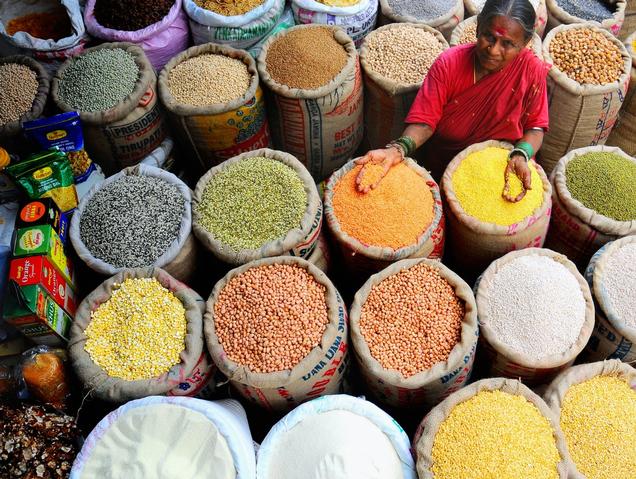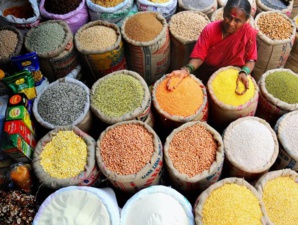Rome- 13 March 2015- A report from Reuters, “Thompson Reuters Foundation”, prepared by Chris Arsenault highlights the increasing trend of importing food business in the international market. According to environment experts this tendency has increased five times in scale over a period of last fifty years alone. They observe that dependency for food in the international market, which makes the world slave to its fluctuations, can be an issue to be afraid of. To illustrate this cause for fear, one could look back in the years of 2010, wherein Russia faced a severe weather condition for which it had stopped supplying food stocks in the international food market. Thus, any similar climatic emergency or the rise in market price can stop the flow of import and export. As a result countries that depend mostly on their imported food market for their food supply will be in a crisis situation.
At present, statistics show that almost more than one third of the nations worldwide are importing grains that amount to a quarter of their total grain production. According to researcher Gary Gardner, who spoke from Washinton’s “Worldwatch Institute”, importing grain business has risen by fifty seven percent from the market figures of 1961. Gardner, who also published a report on "Food Trade and Self-Sufficiency", exposed the research information that in 2013 there were total thirteen nations who were entirely relying on their import market to meet their supply demand, which, the year of 1961 being the yard stick, has seen an increase in this tendency by eighteen percent.
Gardner also points out that back in the year of 1961, the figure of total grain imported worldwide amounted to fifty tones whereas in 2013 the sum of the very figures rise up to three hundred million tones! In Gardner’s words:
At present, statistics show that almost more than one third of the nations worldwide are importing grains that amount to a quarter of their total grain production. According to researcher Gary Gardner, who spoke from Washinton’s “Worldwatch Institute”, importing grain business has risen by fifty seven percent from the market figures of 1961. Gardner, who also published a report on "Food Trade and Self-Sufficiency", exposed the research information that in 2013 there were total thirteen nations who were entirely relying on their import market to meet their supply demand, which, the year of 1961 being the yard stick, has seen an increase in this tendency by eighteen percent.
Gardner also points out that back in the year of 1961, the figure of total grain imported worldwide amounted to fifty tones whereas in 2013 the sum of the very figures rise up to three hundred million tones! In Gardner’s words:
"More and more countries depend on global markets for their food - that creates vulnerability”.
If one refers to the incident of Russian food supply being stopped in the international market, due to a ban imposed by the government, in order to cope with their environmental disaster, one will trace it to be the partial root cause for the social upheaval that lead to an Egyptian revolution. According an Egyptian farm the prices in the international food market had increased which affected the “bread subsidy program” in the country as the supply fell short by five hundred thousand tones to meet the demand.
At present, according to the records of FAO (Food & Agricultural Organization), a branch of U.N., global market for food is going through the lowest price graph in almost last five years. However, the rapidly expanding populations along with their rising appetite especially in the developing nations are a constant pressure source to the environment which may collapse any time.
It is to the interest of the governments that they look after their water reservoirs and farmlands, which in turn will gradually increase the in-country grain production to meet the supply demand by eliminating the chance of being at the mercy of global food market’s fluctuations.
Even though, the shocking number of thousand five million people going hungry in the world in 1990, has come down to eight hundred five million last year, yet in order to tackle with growing population and the trend of urbanization which will play a major role in the economic status, nations are turning cultivational land into industrialized urban zones.
In Gardner’s words:
"National agricultural endowments need to be protected. The market has an important role to play but it shouldn't be the final arbiter of who gets food and where it comes from."


 The Worldwide Dependency On The Global Food Market Is Likely To Bring Crisis
The Worldwide Dependency On The Global Food Market Is Likely To Bring Crisis





 Companies
Companies